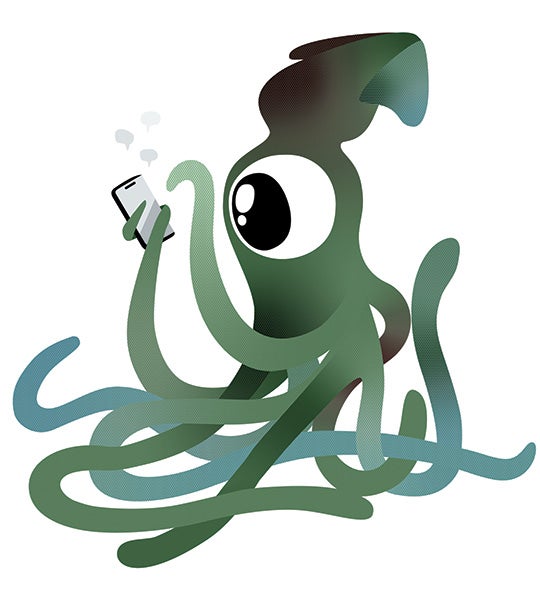Syllabus: Talking Science
The Public Science Communication Seminar teaches effective scientific communication and much more.

Spring 2024
By Nithya Ramcharan '25
NSCI 320/520: Public Science Communication Seminar
DEPARTMENT: Department of Natural Sciences
DESCRIPTION: The goal of the weekly seminar is for students to understand effective scientific communication and public engagement techniques, as well as the breadth of careers available in STEM fields.
From shark TikToks to squid facts by text (just send “SQUID” to 1-833-SCI-TEXT), science can be presented through many unconventional channels. In the Public Science Communication Seminar, teachers Scott Solomon, an evolutionary biologist, and Lauren Kapcha, assistant dean for communications in the Wiess School of Natural Sciences, have filled the syllabus with guest speakers who bring science to the public in new and exciting ways. The speakers are selected with the aim of representing various modes and fields of science.
“We have a great mix of undergraduate and graduate students coming from all different fields of science,” Solomon says. “One of the things that’s fun about [the course] is that there are students with different levels of knowledge and experience with science.”
This semester, guest speakers include the esteemed vaccine developer Dr. Peter Hotez, dean of the National School of Tropical Medicine at Baylor College of Medicine and a fellow in disease and poverty at Rice’s Baker Institute; Rice marine biologist Kory Evans; and behavioral ecologist Kelly Weinersmith, co-author of “A City on Mars: Can We Settle Space, Should We Settle Space, and Have We Really Thought This Through?”
In addition to keeping a journal to reflect on speaker presentations, students are required to find and present examples of both effective and ineffective popular science communications in any media.
Junior Madeline Belknap wanted to take this course to supplement her biomedical research experience and her work as a manager with Fun With Chemistry, a student organization that conducts chemistry shows for children. “It’s really important to be able to communicate science and give back to the community, which is why this class is interesting to me,” she says.
Solomon and Kapcha are working to grow the science communication program. Plans include an introductory course that teaches students best practices in communication, an internship with community partners, and an undergraduate certificate program. Solomon wants students to leave the course with knowledge about the range of careers available in the field, including more traditional research careers in science, which require effective communication skills. “We’ve had several students we’ve kept in touch with who have taken the class over the years who have in fact gone on to do science communication themselves, and that’s really fun,” Solomon says.
